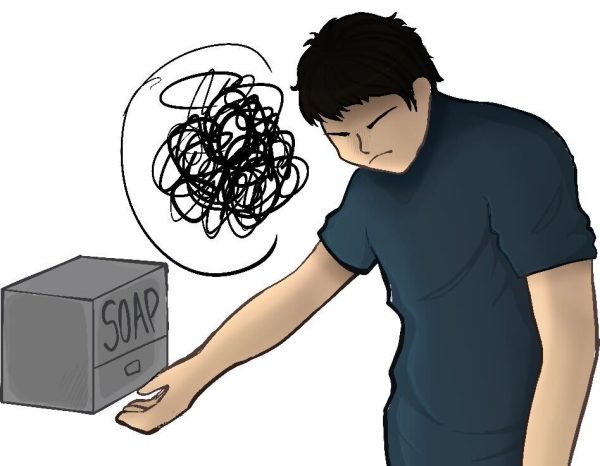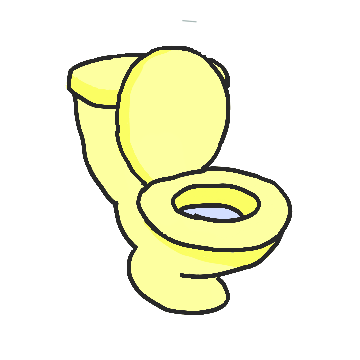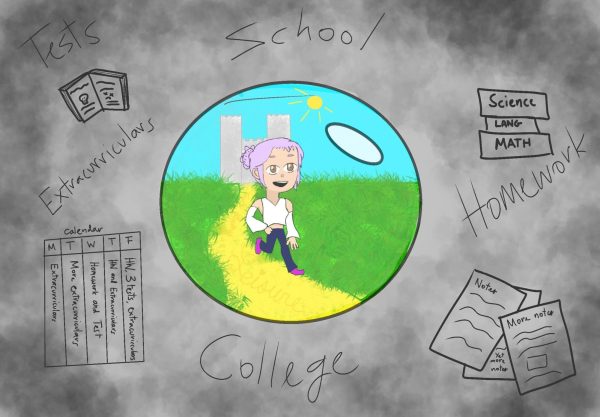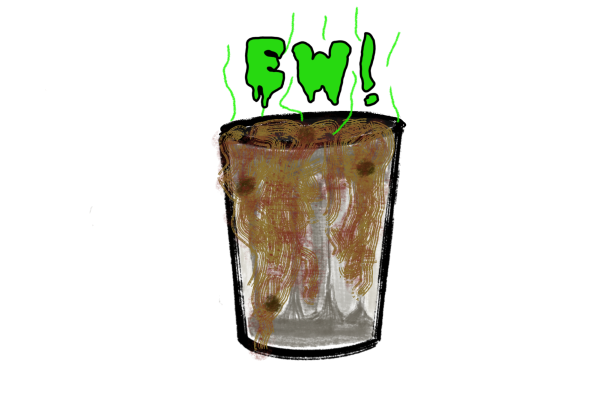The Impatient Patient: Binging on unhealthy coping mechanisms
According to the National Eating Disorder Association the most common eating disorder in the United States is not anorexia or bulimia nervosa, but a disorder most have never even heard of before —- binge eating disorder. The reason why it is not well known is because although introduced in 1959, it was only inducted into the Diagnostic and Statistical Manual of Mental Disorders in 2013.
BED is a life threatening disorder, and as with any disorder, preventative measures need to be made. The lack of awareness in society has made it difficult for individuals affected to gain coverage through insurance.
An episode of BED includes consuming an exorbitant amount of food due to a lack of control over oneself. A person experiencing such an episode may continue to eat despite not feeling particularly hungry or being full, according to the Binge Eating Disorder Association.
The psychological effects of BED include contempt towards oneself, which can segue into depression and anxiety. Another manifestation of these harmful emotions is the potentially destructive cycle of the continued use of food as a coping mechanism to combat negative feelings.
As such, an individual’s relationship with food and body image is tested with BED. According to the National Eating Disorder Association, three out of ten people in search of weight loss remedies are likely to show symptoms of BED.
It is pertinent to note that BED is more prevalent than we think. It is so easy to understate the seriousness of this disorder, or believe that we are exempt from it. After all, food has a steady presence in our life — it is the the most basic level on Maslow’s Hierarchy of Basic Needs. It is not often we truly evaluate our relationship with the food we consume. After all, compared to other vices, such as smoking for example, food as a source of comfort should be harmless, right?
The fact that BED is the most common eating disorder should make us analyze our culture of unnecessary consumption. While the great thing about American society is that we have an abundance of almost everything, this has become our Achilles heel because as a result, we are at a constant want for this and that. We have so much available to us that we become gluttons for consumption, filling our homes with junk and neglecting to feed our soul.
Moreover, this has turned us into a society where consumption in access has become a norm. The word “binge” is thrown around carelessly. We are surrounded by an abundance of outlets — from streaming options that allow us to “binge watch” any media at ease to fast fashion that lets us make so many empty purchases as we please.
An expensive haircut we hope will change our persona and the food we eat to fill the emptiness inside — it is not uncommon to project our sincerest longings to meaningless things. These ‘things’ are what we turn to during late nights racing to finish deadlines or escape the social pressures haunting us. After all, they are the steady comforting presence we associate our temporary feelings of gratification with.
These temporal feelings of gratification make us predispositioned to rely on the objects around us. This is why I stress the importance of BED awareness, as well as other unhealthy coping mechanisms. It can be so easy for us to fall prey to it, to disregard the significance of it, especially with it just recently gaining recognition as an actual eating disorder.
The scary reality is that disorders like BED, and other coping mechanisms are employed as distractors from the issues in our daily life. We become so dependant on our vices, they become addictions. And, the fact that these mechanisms are not necessarily ‘bad’ can make us ignore the seriousness of these addictions. We cannot say no to them.
Stuck between a rock and a hard place, we must say no to the only vice that provides us with a steady stream of comfort. While it can be so elementary to turn back to these unhealthy coping mechanisms, know that we are all human and in all of our complexities, we cannot help but succumb to pressure.
While I definitely encourage anyone who is able to get professional help to get it, not everyone is afforded the same luxury. As such, I call for anyone reading this article to recognize the unhealthy coping mechanisms in their life, and know that there are a plethora of strategies to productively manage feelings of negativity.
The important thing is to find a medium that works for you and feeds your soul, from meditating to journaling to hiking.From meditation to journaling to hiking, it is all about finding a medium that works for you, and feeds your soul.










